|
Witchfinder General, Salem, Malleus Maleficarum. The world of witch-hunts and witch trials sounds archaic and fanciful, these terms relics of an unenlightened, brutal age. However, we often hear ‘witch-hunt’ in today’s media, and the misogyny that shaped witch trials is all too familiar. Three women were prosecuted under a version of the 1735 Witchcraft Act as recently as 2018.
In Witchcraft, Professor Marion Gibson uses thirteen significant trials to tell the global history of witchcraft and witch-hunts. As well as exploring the origins of witch-hunts through some of the most famous trials from the Middle Ages to the eighteenth century, it takes us in new and surprising directions. It shows us how witchcraft was reimagined by lawyers and radical historians in France, how suspicions of sorcery led to murder in Jazz Age Pennsylvania, the effects of colonialism and Christian missionary zeal on ‘witches’ in Africa, and how even today a witch trial can come in many guises. Professor Gibson also tells the stories of the ‘witches’ – mostly women like Helena Scheuberin, Anny Sampson and Joan Wright, whose stories have too often been overshadowed by those of the powerful men, such as King James I and ‘Witchfinder General’ Matthew Hopkins, who hounded them. Once a tool invented by demonologists to hurt and silence their enemies, witch trials have been twisted and transformed over the course of history and the lines between witch and witch-hunter blurred. For the fortunate, a witch-hunt is just a metaphor, but, as this book makes clear, witches are truly still on trial.
0 Comments
16 July 1945.
The very first nuclear explosion in history takes place in the American desert in New Mexico. It is the culmination of the biggest and most expensive military project of any of the warring powers, and it attracted scientists from all over the world. Nobody who saw it ever forgot the moment. “Now I am become Death, the destroyer of worlds,” said Robert Oppenheimer, after having seen the incredibly bright light and felt the heat from the explosion from 10,000 yards away. ‘Oppie’ had been plucked from relative obscurity, at the age of only 38, to take charge of the top-secret Los Alamos laboratory, where the main thinking behind the invention of the A-bomb took place. There, he had led a team of scientists from all over Europe and the Americas, desperately working against the clock to develop the Bomb before Hitler did. Those who remained when Hitler was dead – including Oppie – felt huge guilt that it had been used against Hiroshima and Nagasaki without any warning. After the war, Oppenheimer faced a campaign against him led by Lewis Strauss, the chair of the Atomic Energy Commission. Strauss conceived a great animus against Oppie, which continued throughout his life. He forced Oppenheimer to take part in a hearing lasting three weeks, to answer charges that he was a communist and Soviet spy - and which removed his security status and virtually exiled him in his own country. Among those who gave evidence against him was his former friend Edward Teller, the father of the H-bomb. His evidence set scientist against scientist, and helped ratchet up a global arms race. After 1945, Oppenheimer had become a well-known figure around Washington. pressing for openness about the weapon he had created – desperately trying to avoid the nuclear arms race he believed would destroy civilisation. But these were seriously dark days in the USA. Joe McCarthy was at the height of his power – and anyone who stepped out of line was suspect. As Oppenheimer discovered to his cost...
Charlie Chaplin’s career has been described, critiqued, and scrutinized. There are book-length studies on Chaplin’s music hall career, his career at Keystone Studios and the Mutual Studios. Somehow, his tenure with First National studios, however, has been largely neglected, even though it was during this several-year contractual time period that Chaplin built and occupied his own studio for the first time, that he attempted and succeeded in filming a comedy feature (The Kid) and that he helped to set up United Artists, an organization that protected the salaries and creative freedom of actors in Hollywood.
This period in Chaplin’s story is especially interesting because such landmark moments are accompanied by Chaplin’s first marriage and divorce, the death of his first child, his friendship with French silent film comedian Max Linder, World War I and the role he would play in it, and the production and release of several unsuccessful films that marked Chaplin’s first creative blockage - one that threatened his future career. This book will discuss the transitional periods just before and after the First National contract, as well as the all-important period satisfying it. Archival evidence provides most of the support for the book’s assertions, from the Chaplin archive (property of Roy Export, digitised by Cineteca di Bologna, Italy), and the personal archives of other individuals or institutions discussed. Rare photos will illustrate the story. In The Man Who Built the Berlin Wall, Nathan Morley brings to life the story of the longtime
leader of the German Democratic Republic. Drawing from a wealth of untapped archival sources – and firsthand interviews with Honecker’s lawyers, journalists, and contemporary witnesses – Morley paints a vivid portrait of how an uneducated miner’s son from the Saarland rose to the highest ranks of the German Communist Party. Having survived a decade of brutality in Nazi prisons, Honecker emerged as an ambitious political player and became the shadowy mastermind behind the construction of the Berlin Wall in 1961, a crucial moment in twentieth-century history. Although frequently on the verge of being relegated to obscurity, he managed to overthrow strongman Walter Ulbricht at the height of the Cold War and reigned supreme over the GDR between 1971-1989. However, by 1980, the Honecker honeymoon was on the wane as a decade of economic and social difficulties blighted the GDR. Then, as tumultuous changes swept through the Soviet bloc, everything in and around him collapsed in 1989. His health, his certainties, his ideology, his apparatus of power, and his beloved SED party. Terminally ill, he was literally kidnapped from Russia to answer for his crimes in a Berlin court. A controversial figure, Honecker’s notorious philandering, his difficult relationship with his wife Margot, penchant for porn, addiction to hunting, and gilded lifestyle at a forest settlement north of Berlin are all brought into sharp focus. Although haunted by the fall of the Berlin Wall, Erich Honecker died in 1994, still believing the GDR was the envy of the world. Elisabetta, Marco, and Sandro grow up as the best of friends despite their differences. Elisabetta is a feisty beauty who dreams of becoming a novelist; Marco the brash and athletic son in a family of professional cyclists; and Sandro a Jewish mathematics prodigy, kind-hearted and thoughtful, the son of a lawyer and a doctor. Their friendship blossoms to love, with both Sandro and Marco hoping to win Elisabetta's heart. But in the autumn of 1937, all of that begins to change as Mussolini asserts his power, aligning Italy's Fascists with Hitler's Nazis and altering the very laws that govern Rome. In time, everything that the three hold dear--their families, their homes, and their connection to one another-- is tested in ways they never could have imagined. As anti-Semitism takes legal root and World War II erupts, the threesome realizes that Mussolini was only the beginning. Against this backdrop, the intertwined fates of Elisabetta, Marco, Sandro, and their families will be decided, in a heartbreaking story of both the best and the worst that the world has to offer. Unfolding over decades, Eternal is a tale of loyalty and loss, family and food, love and war--all set in one of the world's most beautiful cities at its darkest moment. This moving novel will be forever etched in the hearts and minds of readers.
It has been five years since Lindsey Fitzharris's debut "The Butchering Art" hit the bookshelves and now the wait is finally over for her long awaited follow up, "The Facemaker."
Telling the story of pioneering plastic surgeon Harold Gillies, Fitzharris moves into the 20th Century and the conflict that left its brutal mark. The Great War, as it was referred to, changed the world forever and for its survivors, left their lives forever changed. For 300,000 men, their faces were left unrecognisable. Harold Gillies made it his aim to give them more normality. Suffering some of the most awful wounds, Gillies and his team would rebuild their faces not only physically but also emotionally. Collaboration is a key theme throughout Fitzharris's new book. Whilst Gillies is at the centre of the story this is much more than a biography as Fitzharris is also keen to highlight the work of others who inspired Gillies, the team around him and their collective determination to heal the wounded faces. This is a book not only about their ground breaking surgeries but also their unbinding compassion. The soldiers themselves also feature heavily in The Facemaker. Stories such as that of Private Percy Clare, who opens the book, are particularly emotive as we follow his story from his wounding at the Battle of Cambrai to his time with Gillies. It is graphic and yet in true Fitzharris style, sublimely beautiful, taking the reader through a harrowing journey from the depths of hellish warfare to one of hope and redemption. Like most works of pioneering medical treatments we are also exposed to the element of medical trial and error. Not all of Gillies patients survived the new treatments to plastic surgery. The gut- wrenching story of William Henry Young leaves an emotional toll on Gillies and his team reminding us that the dangers faced by the soldiers were not left behind on the battlefield. The Facemaker takes us on a emotional journey which wonderfully weaves together the plight of all of those involved. Told with pathos, it is clear that Fitzharris admires Gillies greatly for what he did for the men who sacrificed so much for so many. Regardless as to whether or not The Great War interests you, this is a story about humanity and the extraordinary lengths people will go to in order to bring people back from the depths of despair. What we are left with is a ground breaking work which is destined for the best seller list...and rightfully so.
The old saying “Hell hath no fury like a woman scorned” has never been more relevant than with this new film set in France during WW2.
Marie DuJardin (Nina Bergman) is a Nazi sympathiser travelling with her Nazi lover, Colonel Von Bruckner (Daniel Bernhardt) when the pair are suddenly ambushed by the French Resistance. Whilst Von Bruckner escapes from the car, Marie shows more of her character as it turns out that the ambush was well orchestrated by herself. Inside the car is a small horde of Nazi gold that both Marie and Von Bruckner are aiming to keep. For Marie, it is for the resistance but Von Bruckner is eyeing it for his own personal gain. The resistance is shot down as Von Bruckner returns and the film then switches to Marie’s descent from her previous comforts as Von Bruckner’s lover to a national traitor. A victim of Collaboration horizontale, where women who were seen as Nazi collaborators had their hair shaven off and swastikas placed on their foreheads, we then see Marie with a small group of American Soldiers who claim to have liberated her in return for the Nazi gold she claims she buried in a cemetery. It is here where the mind games begin. Is she telling the truth? Is she stalling for time? Can anyone searching for the gold in the cemetery be fully trusted? This is the conundrum faced by all the parties involved. What we are left with is a collection of characters ravaged by the war in a situation where trust is at a premium. It would be wrong to go much further with more plot detail as there are further twists and turns along the way but credit must go to the director, Jesse V Johnson, for keeping the pace of this thriller to its optimum. Setting a WW2 thriller predominantly in a small cemetery and establishing a tense atmosphere is a tall order when compared to most war related films.
The limited setting allows the characters to shine. Broken, fragile, and desperate, they represent the harrows of war. The people they once were are now a mere figment of their pasts. They are all jaded by the experience and looking to end their wars in their own ways. Greed, retribution and survival all come into play.
Whilst many I’m sure would love more battle scenes, Hell Hath no Fury has more of a film noir feel about it and for that, it should be praised. At a running time of 90 minutes, it is a good portrayal of character-driven drama. Despite being small in scale it is strong in performances with Nina Bergman in particular excelling as Marie. This is a film that highlights the desperation of those involved in war and the lengths they will go to survive. Hell Hath no Fury is certainly one to check out in terms of entertainment but it might be an idea to take your history hat off for this one.
Hell Hath No Fury is released on Digital Download and DVD on the 16th May.
Cert: 18 Run time: 94 mins Ratio: 16:9 Audio: 2.0 / 5.1 Dolby Digital
Berlin, 1982. Morale is at rock bottom in East Germany as the spectre of an all-out nuclear war looms. The Ministry for State Security is hunting for creative new weapons in the war against the class enemy - and their solution is stranger than fiction. Rather than guns, tanks, or bombs, the Stasi develop a programme to fight capitalism through rhyme and verse, winning the culture war through poetry - and the result is the most bizarre book club in history.
Consisting of a small group of spies, soldiers and border guards - some WW2 veterans, others schoolboy recruits - the 'Working Group of Writing Chekists' met monthly until the Wall fell. In a classroom adorned with portraits of Lenin, they wrote their own poetry and were taught verse, metre, and rhetoric by East German poet Uwe Berger. The regime hoped that poetry would sharpen the Stasi's 'party sword' by affirming the spies' belief in the words of Marx and Lenin, as well as strengthening the socialist faith of their comrades. But as the agents became steeped in poetry, revelling in its imaginative ambiguity, the result was the opposite. Rather than entrenching State ideology, they began to question it - and following a radical role reversal, the GDR's secret weapon dramatically backfired. Weaving unseen archival material and exclusive interviews with surviving members, Philip Oltermann reveals the incredible hidden story of a unique experiment: weaponising poetry for politics. Both a gripping true story and a parable about creativity in a surveillance state, this is history writing at its finest.
By George Tomaziu
Romania allied itself with the Nazis in the Second World War to protect itself from the Soviet Union and to promote its own brand of fascist nationalism.
When George Tomaziu, who had spent the 1930s preparing for a career as an artist, was invited to spy for Britain, he agreed because Britain then represented the only possible bulwark against Nazism. He went on to monitor German troop movements through Romania towards the Russian front, observing, on one occasion, the mass-killing of Jews in the small Ukrainian town of Brailov. He knew he might be arrested, tortured and killed by Romania’s right-wing regime but thought that if he survived, his contribution to the war effort would be recognised. It wasn’t. After Romania turned Communist, he was sent back to prison in 1950 and kept him there for 13 years. Following his release, the British helped him get out of Romania and he settled in Paris. This is his memoir.
In the summer of 1962 Joachim Rudolph and a team of diggers had an idea. Having previously escaped to the West of Berlin, Rudolph was now heading back to East, only this time, he was going underneath the Berlin Wall in order to help others escape. What followed was a 135-metre tunnel that ran between a factory building in the west and a tenement block cellar in the east. It would be one of the most spectacular escape plans devised. It had been attempted before but many attempts had either failed or were foiled by the infamous Stasi. It would become known as Tunnel 29 after the 29 people who managed to escape using it.
If like me, you tuned into Helena Merriman's excellent podcast then you will already know what to expect from Tunnel 29: The True Story of an Extraordinary Escape Beneath the Berlin Wall. Merriman excels in producing podcasts but can this be translated into book form? In short, the answer is, of course. Much of that is due to how Merriman chooses to retell the story. Short, sharp chapters give the narrative the element of the same level of urgency felt by those recalling their stories. It gives it a similar feel to the award-winning podcast at the pace of an extremely frantic thriller complete with twists and turns that will keep the reader gripped. Ever since Anna Funder's Stasiland, writers have gone in search of more stories and interviews that help to form this new history of the GDR (German Democratic Republic). Whilst the story of Tunnel 29 is nothing new, Merriman reminds us that it is how you tell the story that really counts. The first time this story was told was back in 1962 as Joachim Rudolph and his team were tunnelling back into the GDR as dozens of men, women and children; were willing to risk everything to escape. Back then, of course, the television cameras were on them capturing the whole event in real-time. Drawing on hundreds of hours of interviews with the survivors, and thousands of pages of Stasi documents, Helena Merriman has plenty to work with which adds even more to the already excellent podcast. In many ways, you could consider this to be the director's cut version of the podcast and Merriman does not disappoint. Tunnel 29 has the feel of classic cold war fiction yet as we know, the truth is often stranger and if anything, more riveting. As the group is infiltrated by the Stasi the pressure is on, not only for the group of diggers but also those waiting in the GDR to make their escape. The tension of the situation is palpable, we feel every centimetre dug and every drop of sweat that hits the floor. This is where Tunnel 29 excels. In many respects, Merriman is a storyteller first and at times it really shows. The context of the situation in the GDR is dealt with swiftly but concisely. For those expecting more than this then don't expect much. Merriman after all is not a historian. Instead the main focus is Joachim Rudolph, the other diggers, and those who escaped. As a journalist, she favours their stories and rightly so. This after all, is their story. For fans of the podcast this is a must-read giving you much more detail to its predecessor. With over 6 million downloads, the podcast produced by Merriman is a hit and this book deserves similar praise. For those that haven't heard the podcast (something you should certainly do) then fear not as this book covers everything and more. |
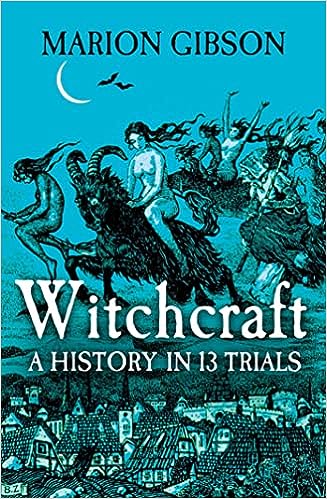
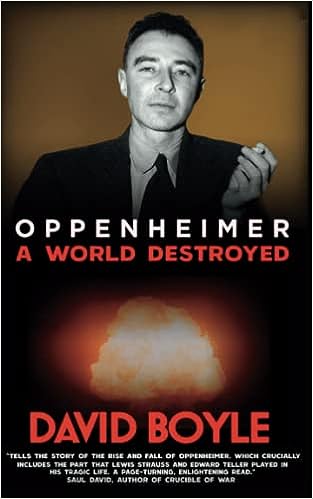
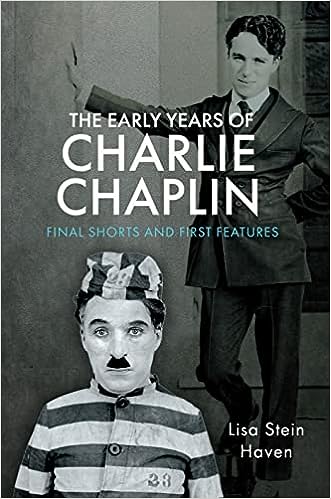


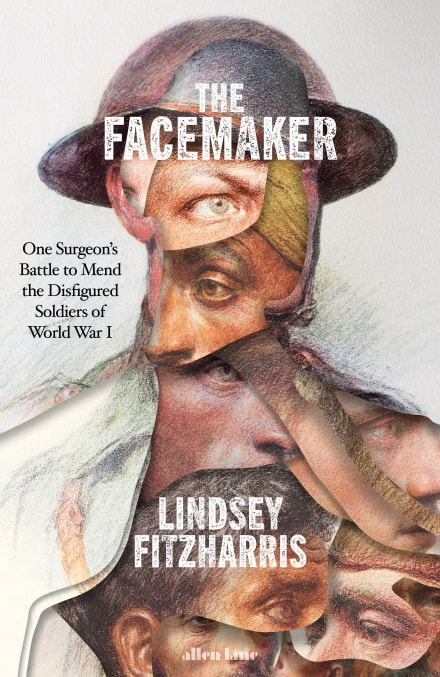

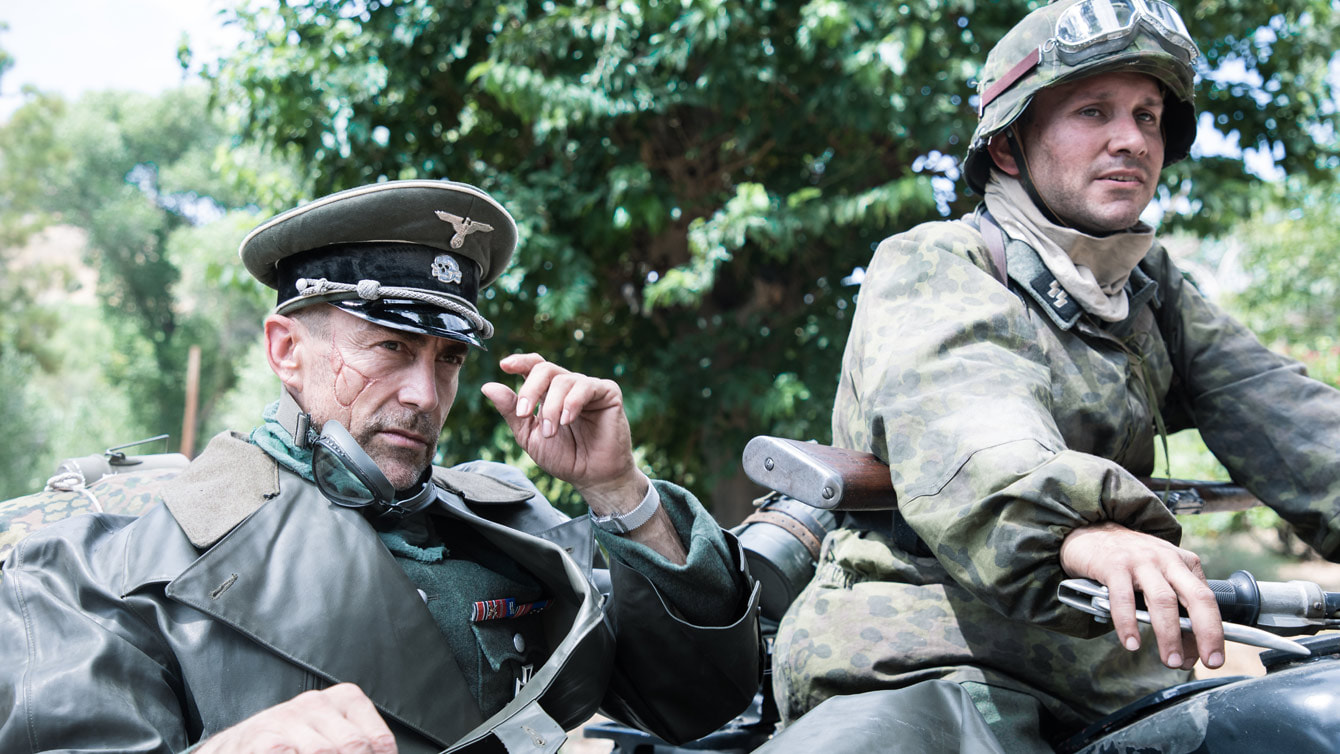
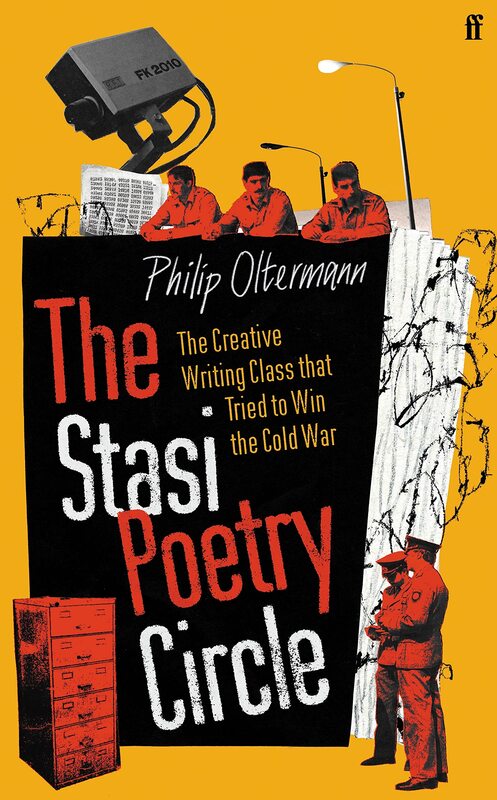
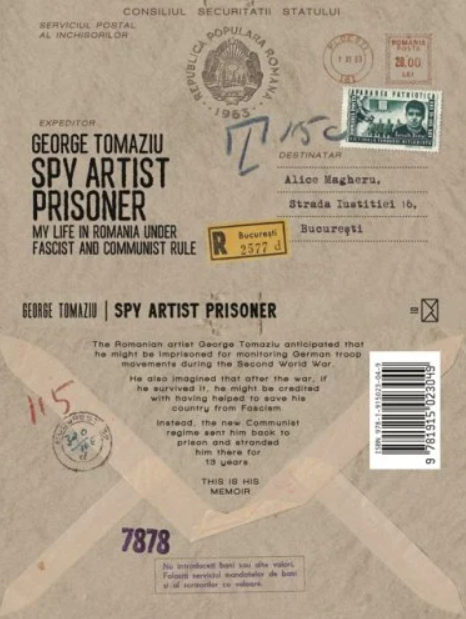

 RSS Feed
RSS Feed





